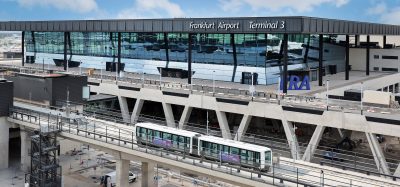Airfield training
Posted: 25 November 2005 | Stephen M. Quilty, A.A.E., Professor – Aviation Studies, Bowling Green, State University, Ohio, USA | No comments yet
The effective operation of any airport depends on the efficacy of its personnel and in this article Professor Quilty discusses the value of properly trained airport personnel.
The effective operation of any airport depends on the efficacy of its personnel and in this article Professor Quilty discusses the value of properly trained airport personnel.
When you get right down to it, the business of operating a safe and efficient airport is about people. It is about the people whose duties and responsibilities are to implement an overall Safety Management System (SMS) in accordance with the standards and recommended practices (SARP) of ICAO, the State, and other best practices. A question that arises from this basic premise is what qualifications should these individuals have in order to carry out those duties and responsibilities? What knowledge, what skills, what general abilities should they have?
The success of many organisations lies in the foundation of hiring the correct person for the assigned purpose, and the further provision of training and educational opportunities to develop and advance that employee’s skills and capabilities. While the task of hiring and training individuals often falls upon the human resource or personnel department, how well versed is this department in knowing what capabilities an airport operations individual must have?
Job Analysis
The first step in hiring the correct individual is to determine which tasks are to be completed and what Knowledge, Skills and Abilities (KSA) are required. Known as a ‘job’ or ‘needs analysis’, a study is normally undertaken to identify the KSAs for a particular job position. Except for a few individual airport organisations, there is not much study in this area which specifically targets airports. Usually, the job description has been carried over from an earlier organisation or another airport and may not fully reflect the desired capabilities.
Recently in the USA, a job analysis study was undertaken to assess the KSAs associated with the hiring of airfield operations individuals. These are the individuals who have prime responsibility for carrying out FAA regulatory requirements at certificated airports serving air carrier operations. The FAA requirements, simply known as Part 139 of the regulations, correspond to the International Civil Aviation Organisation (ICAO) requirements to have an inspection process in place to ensure airfield standards are met and a safe airport operating environment exists. The inspection process is part of an airport’s overall SMS.
What triggered the study was the varying amount of training that airport organisations undertake to educate and train new employees. This lack of knowledge and skills can result in unsafe conditions or hazards that can result in an accident, economic inefficiencies, or bad publicity for the airport. The position of airfield operations agent or inspector in the USA often requires graduation from a college or university and knowledge of airport operations.
Yet, assessment showed that many of the students applying for those positions did not have the requisite knowledge and skills. Due to the FAA’s requirement for only qualified individuals to inspect the airport, the airport organisation must invest in the training function to bridge the gap between the knowledge that the educational institutions provide and the specific knowledge required by the airport organisation.
World class qualification
It is recognised globally that well-trained and educated individuals operating an airport can help to reduce risks and accident occurrence, can improve operating efficiency and effectiveness, can enhance the reputation of the overall airport organisation, and can result in better economic operation of the airport. An example of this is Incheon International Airport in South Korea, where many of their employees have received international training and certification by the American Association of Airport Executives (AAAE). Since its opening five years ago, it has rapidly positioned itself as a world class airport, in part because of its focus on training and education.
Unfortunately, too many airport organisations do not invest adequately in the training function. The reasons for this vary. It could be because the return on investment is not immediately recognised, that the organisational structure is limited, that the airport lacks facilities or trainers, or any number of other reasons. Sadly, many airports view training as an expendable line item in their budget and deem training as not central to their overall mission. This is evidenced by the training related budget cuts made at many airports during an economic downturn. Well trained individuals are, in fact, central to any airport mission.
It is for these reasons that ICAO emphasises through SARPs and the SMS requirement the specific training of those who inspect the airfield. In the USA, there is current consideration to require the licensing of airfield inspectors, just as aircraft pilots and aircraft maintenance engineers are licensed.
This brings us back to the knowledge and skills requirements that an airfield operations individual would need to be successful.
The International Journal of Applied Aviation Studies recently published a study identifying the important skills and traits for individuals seeking employment in entry level airport operations and management positions. They were arrived at by surveying a total of 106 airport managers and airfield operations personnel from large, medium, small, nonhub and general aviation airports in the USA.
The findings indicated the expectation for new employees to be able to communicate effectively as a primary skill. It also points to individual responsibility, as indicated by the rankings associated with hazard recognition, ethics, personal initiative, and time management. This is understandable in that airfield operations agents or inspectors often work independently and assume full responsibility for airfield operation. They are the first line of defence for ensuring a safe operational airport according to the standards.
Important knowledge
From a knowledge standpoint, the survey sought ranking of 92 different knowledge topics. The full study of knowledge requirements, derived from the 116 managers that responded is expected to be published by the end of the year.
The top 25 items identified clearly point to the requirement for entry level airfield operations personnel to know how the airfield operates and what the regulatory requirements and procedures are, and then be able to communicate this information to others. These are not topics that are normally taught in detail at a college or university education program. Hence, airports must bridge the gap between the generalised knowledge of those individuals who meet the basic requirements as employee candidates and the specialised needs and requirements of the specific airport organisation.
Bridging the gap
There are three ways to address this gap. One is for schools and universities to modify their curriculum to better address the need. Another is for airport organisations to provide the requisite training and other educational opportunities. The third is for the State or outside providers to provide similar opportunities. Each of the options has advantages and disadvantages. What must not be dismissed in any case, however, is the idea that the training is central to an airport’s mission and is therefore necessary and required. Airports must respond to the challenge to ensure qualified individuals are carrying out the safety functions and requirements. The safety of the travelling public and the users of the airport depend upon it and they expect nothing less.
As mentioned previously, the business of operating a safe and efficient airport is about people. It is about well trained and educated individuals who know their job duties and responsibilities and are able to adapt in a constantly changing and evolving airport environment. The skills and knowledge requirements of individuals responsible for safe airport operations must be developed. In order to become and remain a world class airport, an airport organisation must invest and support the training function. Whether that training is conducted internally or externally the organisation, the investment is best compared to the cost of an accident, were it to occur because of a lack of training. Airports cannot afford the cost of an accident or loss of reputation because they did not properly train and educate their employees.
Additional reading:
- Quilty, Stephen M. (2005). Skill and trait identification for entry-level airport operations and management personnel. International Journal of Applied Aviation Studies, 5(1), 183-194.
- Quilty, Stephen M. (2003). Achieving recognition as a world class airport through education and training Journal of Air Transportation 8(1), 3-14.
- Quilty, Stephen M. Study Results on Knowledge Requirements for Entry-level Airport Operations and Management Personnel. Journal of Air Transportation (in press).
Stephen M. Quilty
Stephen M. Quilty is an associate professor in the aviation studies program at Bowling Green State University, Ohio, USA. An accredited airport executive, Mr. Quilty is the original author of the AAAE accreditation, certified member, and A.C.E.- Operations educational material. He develops airport training material and conducts training sessions at airports worldwide.
Stay Connected with International Airport Review — Subscribe for Free!
Get exclusive access to the latest airport and aviation industry insights from International Airport Review — tailored to your interests.
✅ Expert-Led Webinars – Gain insights from global aviation leaders
✅ Weekly News & Reports – Airport innovation, thought leadership, and industry trends
✅ Exclusive Industry Insights – Discover cutting-edge technologies shaping the future of air travel
✅ International Airport Summit – Join our flagship event to network with industry leaders and explore the latest advancements
Choose the updates that matter most to you.
Sign up now to stay informed, inspired, and connected — all for free!
Thank you for being part of our aviation community. Let’s keep shaping the future of airports together!

















